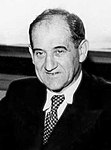.mw-parser-output .hidden-begin{box-sizing:border-box;width:100%;padding:5px;border:none;font-size:95%}.mw-parser-output .hidden-title{font-weight:bold;line-height:1.6;text-align:left}.mw-parser-output .hidden-content{text-align:left}@media all and (max-width:500px){.mw-parser-output .hidden-begin{width:auto!important;clear:none!important;float:none!important))You can help expand this article with text translated from
the corresponding article in French. Click [show] for important translation instructions.
Machine translation, like
DeepL or
Google Translate, is a useful starting point for translations, but translators must revise errors as necessary and confirm that the translation is accurate, rather than simply copy-pasting machine-translated text into the English Wikipedia.
Do not translate text that appears unreliable or low-quality. If possible, verify the text with references provided in the foreign-language article.
You must provide
copyright attribution in the
edit summary accompanying your translation by providing an
interlanguage link to the source of your translation. A model attribution edit summary is Content in this edit is translated from the existing French Wikipedia article at [[:fr:Élection présidentielle française de 1958]]; see its history for attribution.
You may also add the template ((Translated|fr|Élection présidentielle française de 1958)) to the
talk page.
For more guidance, see
Wikipedia:Translation.
1958 French presidential election|
|
|
| Registered | 81,764 |
|---|
| Turnout | 99.42% |
|---|
|
|
|
The 1958 French presidential election was the first held under the French Fifth Republic, on 21 December. It was the sole presidential election by electoral college (gathering the members of the French Parliament, the general councils, the overseas assemblies, as well as tens of thousands of mayors, deputy mayors and municipal councillors) under the Fifth Republic. To win, a candidate was required to receive over 50% of the vote. This system was used solely for this election, as it was abolished following a 1962 referendum.[1][2][3]
Charles de Gaulle, who became President of the Council of Ministers (Prime Minister) after the May 1958 crisis amid the Algerian War, won in a landslide victory in the first round of voting with 78.5% of the votes cast, against Georges Marrane of the French Communist Party and Albert Châtelet of the Union of Democratic Forces.[4] De Gaulle took office on 8 January 1959; following the 1962 referendum, he established direct universal suffrage for presidential elections, starting in 1965, which saw him win reelection to a second term.[5]


